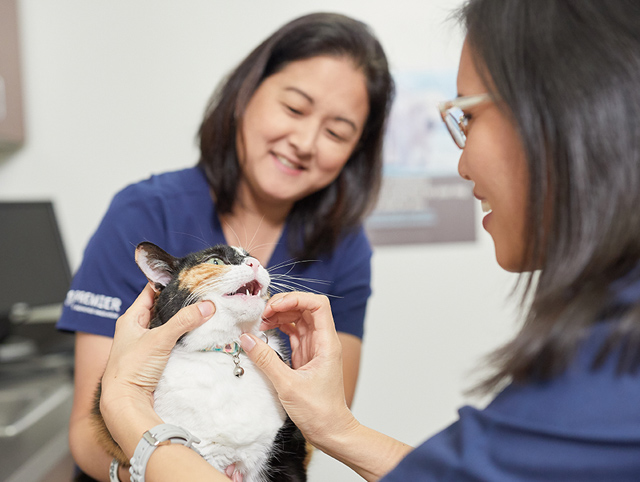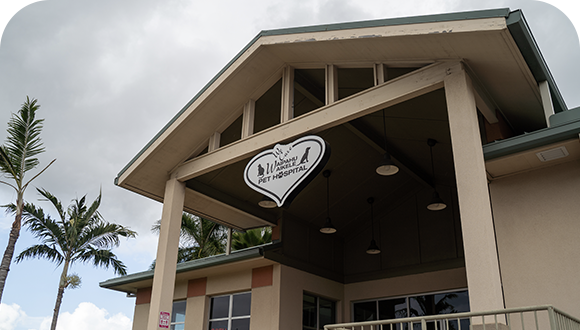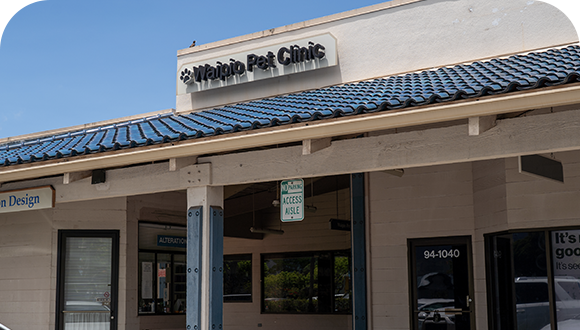
National Veterinary Technician Week: October 11th – 17th
The third week of October is National Veterinary Technician Week. Since 1993, this national week of recognition has honored the invaluable contribution of these dedicated care providers. It was established by the National Technicians of Veterinary Technicians in America, a nonprofit association with a mission of advancing the profession of veterinary technology and nursing. NAVTA created this week to raise awareness about veterinary technicians’ work and support their professional community. National Veterinary Technician Week marks a time to recognize the difference that these professionals make in pets’ quality of life, and it is a welcome opportunity to show appreciation for all that they do.
The Role of a Veterinary Technician
Veterinary technicians support the day-to-day operations of a veterinary practice by providing direct care for pets in many important ways. They assist veterinarians during their examinations by helping to handle pets of all shapes, sizes, and dispositions. Many pets are somewhat fearful in a veterinarian’s office, and the reassurance offered by a veterinary technician can make the experience more manageable for both pets and the veterinarians treating them. Here are some of the most common tasks performed by a vet tech:
• Taking blood, urine, or stool samples
• Conducting imaging or diagnostic studies such as x-rays
• Preparing pets for surgical procedures and handling post-operative care, such as monitoring vital signs, evaluating recovery from anesthetics, and replacing dressings
• Caring for and providing comfort and support to pets that are hospitalized or confined to a clinical setting for observation or injury (feeding, walking, administering medications, etc.)
• Giving dental examinations and assisting with dental procedures
• Grooming, trimming pets’ claws, and handling flea and ear mite treatments
• Cleaning examination rooms and kennels
• Updating medical records
Ways a Veterinarian Technician Supports Doctors
Working with a highly skilled veterinary technician is a huge advantage to a veterinarian. Great vet techs help veterinarians stay organized and use their time as efficiently as possible. Veterinarians rely on vet techs to update them about what is happening with their patients and help them get the information that they need to make accurate diagnoses and effective treatment plans for their patients.
Ways a Veterinary Technician Supports Pet Owners
Pet owners often love their pets as a part of their family. When they bring their companions to the veterinarian for a routine exam or to treat a medical condition, they want to know their pets are receiving the highest quality of care.
Veterinary technicians have a key role in the quality of pets’ care, and it is common for them to interact directly with pets’ owners. They may get information from an owner prior to a pet's appointment with a veterinarian, much like a physician’s assistant or a nurse completes an intake prior to a patient’s appointment with his or her primary care physician or a specialist. In general, a veterinary technician may ask an owner about what medications a pet is taking, what is their pet’s diet, or which symptoms may be concerning to an owner.
People who are getting emergency attention for a pet are likely to be very anxious, and the support that they get from a vet tech can be reassuring. The combination of empathy and methodical attention to detail that pet owners see when they interact with a skilled vet tech reassures them about the high quality of care that their pet is getting.
A Veterinary Technician’s Skill Set
Professionals who care for pets need a strong and dynamic skill set. First and foremost, it is essential that they have both outstanding competence and compassion. They must also have good active listening and communication skills to interact with veterinarians as well as the pets’ owners. Furthermore, the role requires that they be attentive to the needs of the pets that they are caring for. Pets cannot tell their care providers how they are feeling, and it is common for a sick or injured pet to hide or mask discomfort. Vet techs need good observational skills to pick up on subtle signs and symptoms.
All vet techs must be good multitaskers and highly organized. Over the course of a busy day, they may be responsible for caring for multiple animal patients simultaneously, and they have to keep track of a lot of information. They typically need to have considerable physical endurance. A vet tech typically spends most of the day on his or her feet and caring for certain pets could involve a significant amount of strength to restrain or lift them.
Raising Awareness About the Profession
National Veterinary Technician Week is a fantastic opportunity for people who work as veterinary technicians to share their personal experiences. When they write or speak about their work, they can impart key insight about what their job role is really like. Their stories about how they have helped pets and supported owners can inspire people to consider pursuing a career in this field. Firsthand descriptions of their individual journeys on this career path, including getting an education and finding employment, provide valuable information about the process of becoming a veterinary technician.
Promoting Education
A person who is interested in studying veterinary technology or nursing should take advantage of National Veterinary Technician Week to learn more about the field. In addition to hearing about veterinary technicians’ experiences, they can learn more about educational institutions' programs. Hearing about course curriculums and training programs is a great starting point for people who are interested in this career.
Usually, a person has to pursue a two-year degree to be a veterinary technician. Individuals should gauge their interest in the academic components of this course of study prior to enrollment in a program. Studies general require a focus on math and biology as well as a strong emphasis on hands-on learning. A professional degree and as well as a certification from a state licensing board are a prerequisite to employment. Licensing requirements and procedures for renewal vary by state, but most states use the Veterinary Technician National Exam as a mandatory condition for licensure.
Strengthening the Professional Community
During National Veterinary Technician Week, vet techs and other veterinary care providers have the chance to support their professional community. Through events and social media communications, they can establish a dialog about the quality of care that they provide as well as strategies for addressing the challenges they face in their job roles.
They can also discuss clinical advancements and emerging trends in veterinary medicine. In a field that is constantly advancing, an open exchange of ideas and information is essential. Ultimately, technicians and other veterinary professionals have a lot to learn from one another. Sharing personal perspectives and forming connections shapes a strong and active network of dedicated workers.
At Pet Hospitals of Hawaii, we have tremendous appreciation for the amazing work of our veterinary technicians. During National Veterinary Technician Week, we honor their exceptional work ethic and commitment to providing excellent care. Our techs are deeply invested in the quality of care received by every patient, and all of them are passionate about what they do. Over the course of 2020, our team has gone above and beyond to provide high-quality care to patients in the face of unprecedented challenges. We are truly thankful to have such dedicated and hardworking veterinary technicians on our care teams.


















